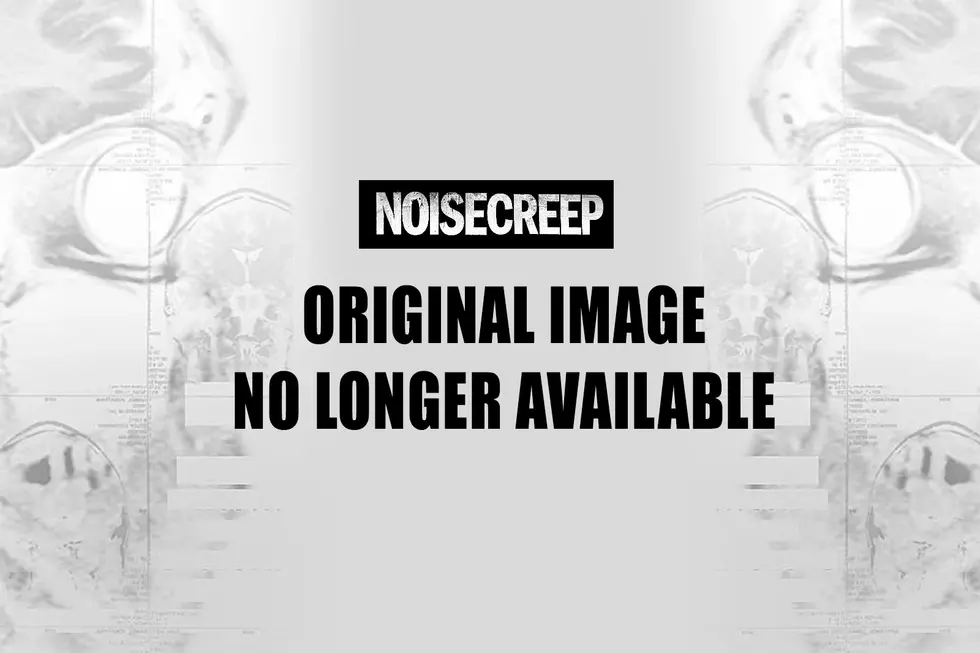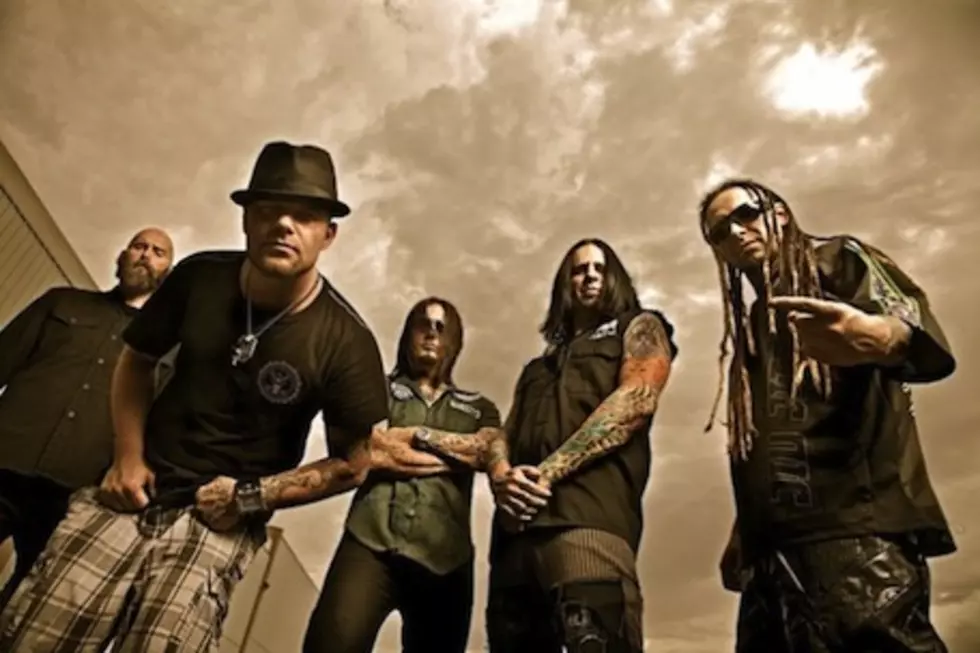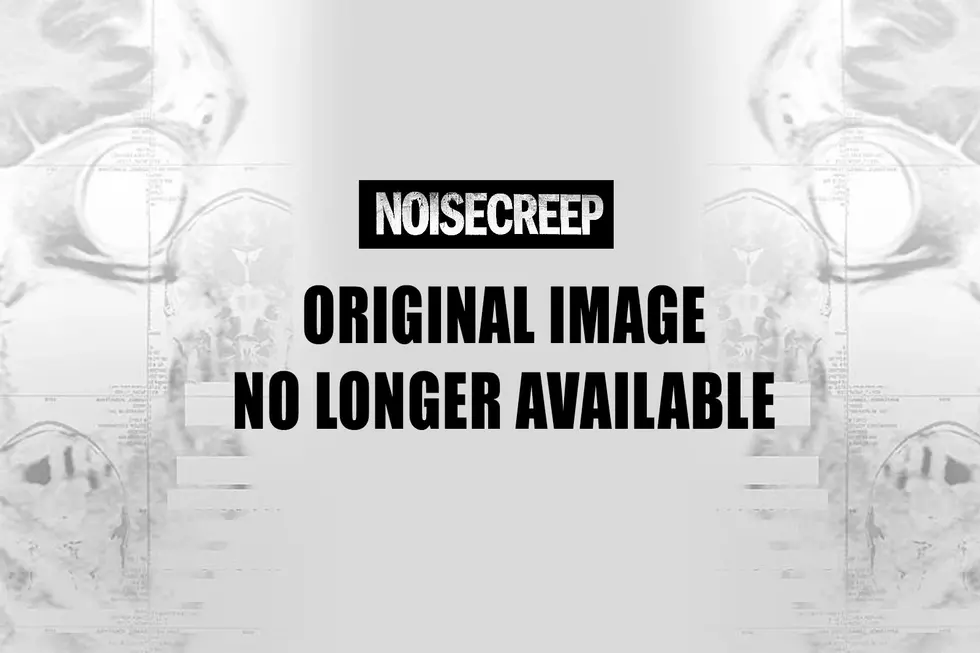
Sabbath Proggy Sabbath: Ruminations on the First Progressive Metal Album
In the third installment of his 'Mean Deviation' column, music historian Jeff Wagner tells us what he thinks is the first true progressive metal album.
Wagner is the author of 'Mean Deviation: Four Decades of Progressive Heavy Metal,' an exhaustive history on the sound and its various offshoots.
Sabbath Proggy Sabbath: Ruminations on the First Progressive Metal Album
What is your definition of progressive metal? Fourteen-minute songs crammed with 11 minutes of guitars and keyboards trading arpeggios, no real song anywhere? Is it about overblown conceptual double-albums that pit invisible cosmic entities against a pantheon of Norse gods, lyrics at a 57,899 word count? Is it a highly technical approach that only 17 musicians in the world could possibly pull of? If these sound similar to your own definition (I realize these sorts of things are personal and highly subjective), then you might not dig what follows. But hear me out.
My personal definition of "progressive" as it applies to music, specifically to metal, doesn't include a single band that sounds like they're trying to be the next Dream Theater. Sheepish behavior is the antithesis of "progressive," and templates are anathema. "Progressive" uniquely treads new territory and then never treads that same territory again. It is a perpetual forward thrust into the unknown. It is exemplified by a band that keeps you guessing, where you never really know what's lurking around the next corner. It is bravery.
In my book Mean Deviation: Four Decades of Progressive Heavy Metal, I casually wonder if Black Sabbath's Sabbath Bloody Sabbath might not be the first-ever progressive metal album. It was a devil's advocate sort of comment, thrown out there and then left alone...but lately I've been wondering if there might just be more to explore there. I know that it doesn't really matter what you call any band or album. Is Metallica's Death Magnetic true thrash? Is Slayer thrash, death metal, or early black metal? What the hell is Slipknot, nu metal? Doesn't matter as long as it moves you, right? But in the interest of laying out timelines and important historical landmarks in metal history, we sometimes need names and definitions.
First, you need to believe that Black Sabbath is heavy metal. Some, including guitarist Tony "Riffmaster General" Iommi himself, consider the band to be merely hard rock. Deep Purple is hard rock. Led Zeppelin is hard rock. All of them are based in the blues (a bit of classical in Purple's case, and a bit of folk in Zeppelin's). But some feel that Sabbath's self-titled 1970 debut not only grew a distinct branch onto rock and roll's evolutionary tree, but that it also dropped a seed that grew into an entirely new rock species altogether. There can be no other name for songs like "Black Sabbath," "War Pigs," "Lord of This World" or "Snowblind" than heavy metal. What other song from 1970 or before created such a foggy, chilling, frightful world in the way Black Sabbath's eponymous doom hymn did? None. I've looked. I haven't found anything heavier or darker from this time period. Nothing so dark, and nothing that featured such a sick wall of thick guitar and tormented singing. This young Birmingham band's music demanded a new name. It necessarily had to separate itself from rock, or hard rock, or acid rock, or whatever. We all know it wasn't immediately dubbed "heavy metal" -- the term would take several years to be regularly applied to bands (and usually more toward the '70s incarnations of Judas Priest and Scorpions) -- but any dummy with a good set of ears and a working knowledge of basic rock history can't deny Black Sabbath are heavy metal.
Then we have progressive rock, which was not widely known as "prog" until years after the movement died down a little (the '80s), but everyone knows now what "prog rock" is. And prog rock, that whipping boy of tastemakers and trendsetters everywhere, was peaking in 1973. It was the year of Pink Floyd's Dark Side of the Moon, King Crimson's Larks' Tongues in Aspic, and ELP's Brain Salad Surgery. The stuff was HUGE, selling hundreds of thousands of albums and selling out arenas. When Black Sabbath's fifth album plonked down onto the rock terrain of 1973, it was a refined, elaborate piece of work, a more sublime collection of songs than anything the band had hinted at before. Even the eclectic, acid-laced moments of 1972's Vol. 4 were mere baby steps toward the Sabbathian monument that arrived in 1973.
Prog metal evidence comes quickly, as the opening title track proves. First we hear possibly the best riff ever (yes, I said "best riff ever"), followed by Ozzy Osbourne's high, pleading wails. The album shows Ozzy at his most interesting and expansive, probably the best of his career; every odd corner turned by the band, every unorthodox arrangement idea, is met by Ozzy with equally inspired stuff. The second half of the song's verse melts into smooth jazz rock, before Iommi's heaviness delivers a caustic answer. But then the Heaviest Riff Ever arrives: the mind-melting breakdown that begins with "Where can you run to," dragged through leagues of sludge by what might be the first example of a de-tuned metal guitar. Total bliss.
Listen to "Sabbath Bloody Sabbath" From Black Sabbath
Fast forward to album closer, "'Spiral Architect," and you discover this is an album of eclectic bookends. The tune is a bit of mental wanderlust, with the band adding to the traditional drums/bass/guitar/vocal arsenal with various percussion, timpani drums, fuzz bass-drum (whatever that is), nose (ditto), and bagpipes. Bagpipes! Sixth song, "Who Are You," features a ton of keys – pianos, synths, Mellotrons – that work toward a very cosmic four minutes. And another exemplary performance by Mr. Osbourne.
Listen to "Who Are You" From Black Sabbath
As with any great prog rock or prog metal album, there's incredible variety throughout, each song bringing something new and interesting to the table. "A National Acrobat" is a grouping of different movements that never repeat, avoiding familiar verse/chorus/verse/chorus/bridge/chorus patterns. "Fluff" is a lazy, languid guitar/harpsichord/piano/bass instrumental. Bassist Geezer Butler is slippery and snaky in "Killing Yourself to Live," a stealthy performance that's one of his best, even though he rarely gets the credit he deserves for this track. "Looking for Today" is bright, optimistic, and upbeat, with folk-y hints and acoustic guitar double-tracked underneath much of the electric. It's all those way-too-nice things Black Sabbath isn't supposed to be.
Listen to "Looking for Today" From Black Sabbath
Sabbath Bloody Sabbath was recorded over a long stretch of time, implementing orchestras and other odd bits of instrumentation, including Yes keyboard wizard Rick Wakeman on "Sabbra Cadabra." Yes were recording in another part of Morgan Studios (a little four-song double album called Tales From Topographic Oceans), and they paid him in beer to tinkle the keys a little bit. All this messing about, all this adulteration and experimentation, provides ample prog metal evidence, but even the imagery and lyrics fill this album out as a bona fide prog-minded epic. Esoteric musings on reincarnation in "A National Acrobat" and the picture inside the gatefold showing the band as ghostly figures haunting the bedroom of the album cover...it's all so Hipgnosis-like (although the famed design company wasn't responsible for this sleeve--the credit goes to Pacific Eye & Ear and illustrator Drew Struzan).
There's still a huge faction of folks who dismiss Black Sabbath after the first four albums, claiming that 1970 to 1972 were the only years the original Osbourne/Iommi/Butler/Ward quartet managed anything vital. Which is total nonsense. I don't necessarily agree with Iommi that Black Sabbath isn't a heavy metal band, but I do agree with him when he says of Sabbath Bloody Sabbath (in his book Iron Man), that the album was "the pinnacle."
Sabbath Bloody Sabbath was followed up in 1975 with Sabotage, an album worthy of the same hyperbole I've slathered all over Sabbath Bloody Sabbath. Delve deep into the mid-period of Black Sabbath 1970s era. The rewards are plentiful. And for dog's sake, try to listen to it on vinyl, the original gatefold, with seeds busting up the spine and a lava lamp providing additional atmosphere. Earbuds aren't gonna cut it with this one.
More From Noisecreep









